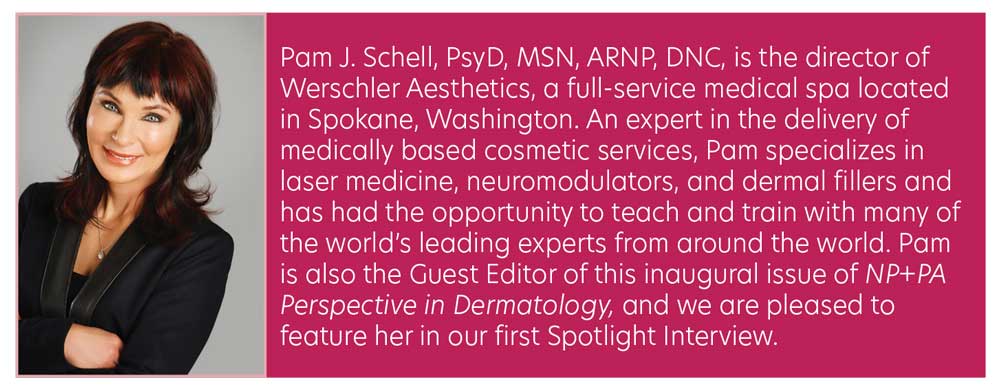 Tell us a little bit about your educational background.
Tell us a little bit about your educational background.
Pam: I received my Bachelor of Science in Nursing, Master of Science in Nursing, and Advanced Practice Nursing degrees from Washington State University at the Intercollegiate College of Nursing. I also completed my Doctorate in Health Psychology, with a focus toward preventative medicine. I am board certified through the American Academy of Nurse Practitioners, the American Board of Laser Surgery, and the Dermatology Nurses Association.
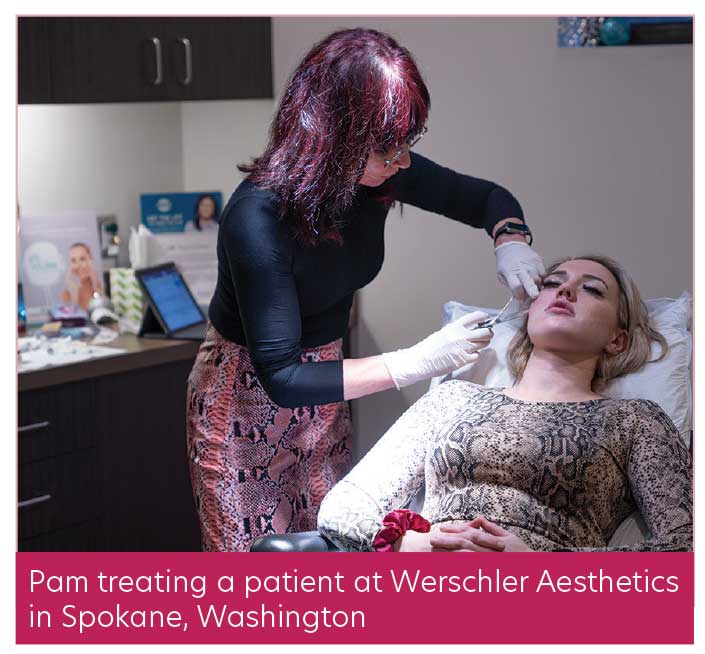 Did you practice in another area of medicine before deciding to pursue a career in dermatology? What attracted you to aesthetics?
Did you practice in another area of medicine before deciding to pursue a career in dermatology? What attracted you to aesthetics?
Pam: As a newly graduated BSN, the best job I could find with the most decent pay was as a psychiatric nurse. It was actually the area of nursing I was most comfortable in because most of my clinical rotations in nursing school were in psychiatric settings. As it turned out, I really enjoyed working with these patients, and the position taught me a great deal about people in general. My time as a psychiatric nurse provided valuable life lessons on many levels for me. It’s an area of medicine I still really enjoy, and I stay as up to date as possible on new research in the field.
My career in aesthetics started when I went to see Dr. Philip Werschler (who, coincidentally, eventually became my husband!) for an acne check. I had been an acne sufferer since my teenage years and had learned much about skin care on my own by carefully researching product ingredients for my own benefit. Long story short, I had purchased a skin care product at Phil’s medspa back in 2002, and it caused me to break out horribly. I went back to see him, telling him that it wasn’t acceptable that I knew more about skin care than the employees at his medspa—well, he offered me a job on the spot. I was about halfway through my Master’s in Psychology at the time, so I had to reroute my education a bit, but I have thoroughly enjoyed the journey.
You grew up on a wheat farm in rural Washington state. How do you think this prepared you for medical practice?
Pam: I think growing up on a farm taught me the value of a hard day of honest, authentic work. You can’t balk at hard work on a farm. You have to take care of your family, and neighbors too when they need it, when you live in a rural community. It’s a way of life that doesn’t really exist much anymore.
I remember the first time I thought about going to college. I was in high school, and it was summer break, and I had just been kicked out of bed at the crack of dawn to go hoe weeds. That’s when I first said to myself, “I am going to go to college!” I didn’t really have a clue what going to college would entail; I just knew I was going to go. I am my family’s first-generation college graduate.
How has your doctorate in health psychology impacted the care you provide your patients?
Pam: My doctorate helps my patient care on so many levels. First, it taught me the value of quality research. When working on a doctorate, you must learn to research things very thoroughly, and I always want to be able to share the valuable information I learn with my patients. My doctorate has also allowed me to better understand what motivates patients and how to help them project healthy behaviors. Aesthetic medicine isn’t just about injecting and lasering patients. I research supplements, healthy behaviors, hormone replacement, new treatments, anything and everything I believe will be beneficial to my patients. Aesthetic medicine is fascinating because new research is coming out all of the time. And I believe that looking and feeling good really does come from the inside and radiates outward.
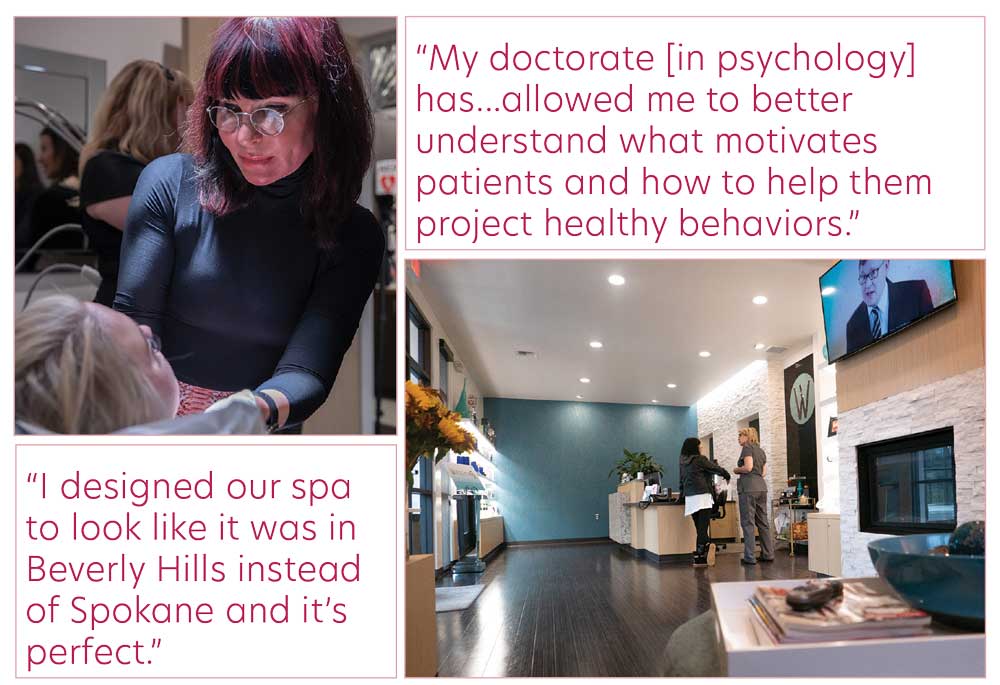
How is the ongoing COVID-19 pandemic affecting your practice? How do you see it impacting aesthetic dermatology in the long term?
Pam: Here, in the state of Washington, Werschler Aesthetics is not considered an essential business, so we are not able to see patients in person at this time. Instead, we are focusing on telehealth aesthetic consults and doing educational videos for our patients. I also treat patients with complex cases of acne, and I still see these patients via telehealth. When we are able to start seeing patients again in person, I know it won’t be business as usual, but I don’t really know what this means right now. Phil and I have been discussing some different things we may do going forward, but nothing is solidified yet.
What is most important to you regarding your patients and the care you provide?
Pam: Doing the absolutely best job I can for my patients while providing the safest care possible is most important to me. We know so much more about complications in aesthetic medicine now, so safety is a crucial part of my practice. And I love making people feel more beautiful about themselves. We all have something that is beautiful about us, and I love enhancing these attributes in my patients. I pride myself on staying informed and well-educated regarding the latest science and trends in aesthetic medicine. I make sure to keep the equipment at our spa current, as well, so that I can offer my patients the best treatments there are on the market.
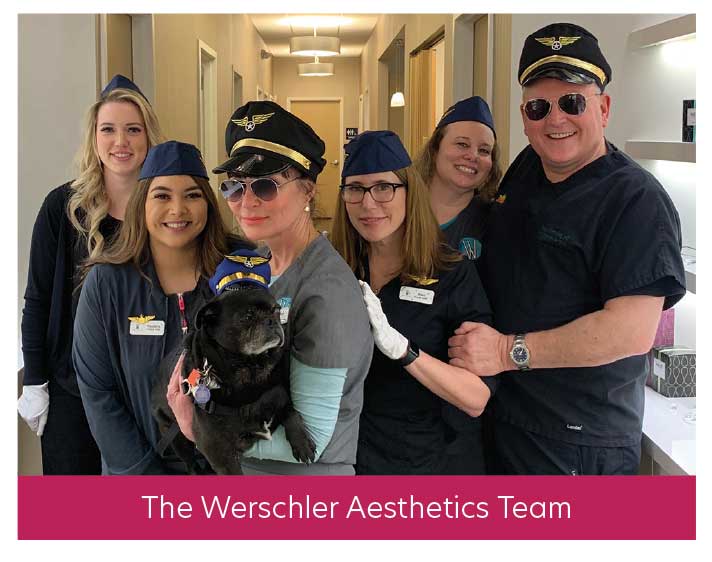 What do you strive for and value the most in your practice?
What do you strive for and value the most in your practice?
Pam: I love perfection, and I love making people happy. I designed our spa to look like it was in Beverly Hills instead of Spokane and it’s perfect. I have the most amazing staff, and I couldn’t do any of this without them. It is also very important for me to run an honest business. When we recommend treatments to our patients, we know it will work for them, because I research every product we sell, every procedure we offer, everything, to great lengths, all the way down to the smallest skin care product. I always focus on doing the right thing for each patient, and treating them the way I want to be treated guides my pathway in healthcare.
What words of advice would you offer NPs and PAs who are considering a career in medical or aesthetic dermatology?
Pam: Dermatology is an amazing area of medicine. Helping people improve their skin conditions and make them feel more attractive is magical. We all know how depressed people can become with acne, psoriasis, and many other skin conditions.
As for words of advice? Always be humble and always know that there is something more for you to learn. I’ve been practicing in this area of medicine now since 2002, and I have been blessed with opportunities of education and experience, but I still strive to learn something new every day. We should never quit seeking answers and learning new things, and we should never believe we know everything there is to know in dermatology.
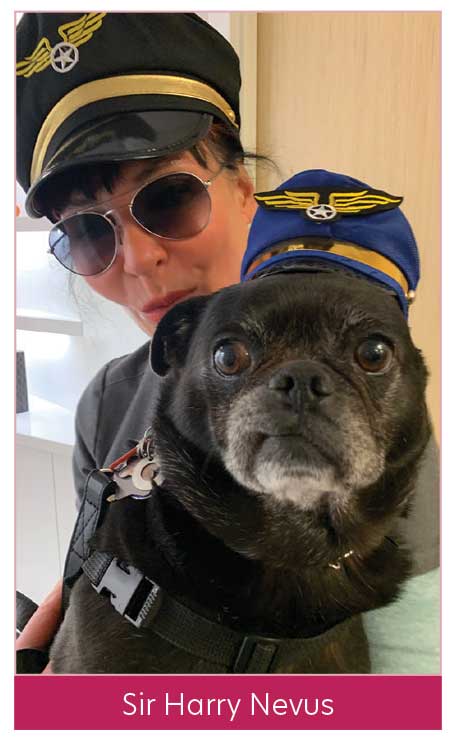 Before we end our chat, tell us about Sir Harry Nevus, the Pet Partner of Werschler Aesthetics. I understand you have been awarded the highly regarded honorific “Pet Partner Companion.”
Before we end our chat, tell us about Sir Harry Nevus, the Pet Partner of Werschler Aesthetics. I understand you have been awarded the highly regarded honorific “Pet Partner Companion.”
Pam: Nevus is such a special guy, and he is the King of Spokane Dermatology Clinic and Werschler Aesthetics. We have him listed on our website as a provider, and he even has his own Facebook page @Sir Harry Nevus (if you’d like to friend him). Every Monday, he does his “Pawduct” product selection for the week. Nevus really helps the patients feel better when he is making his rounds through the waiting room. My husband, Phil, always says, “Don’t make Pam pick between me and Nevus!” Nevus is a little spoiled, but he is so precious to me, Phil, and everyone at work.

